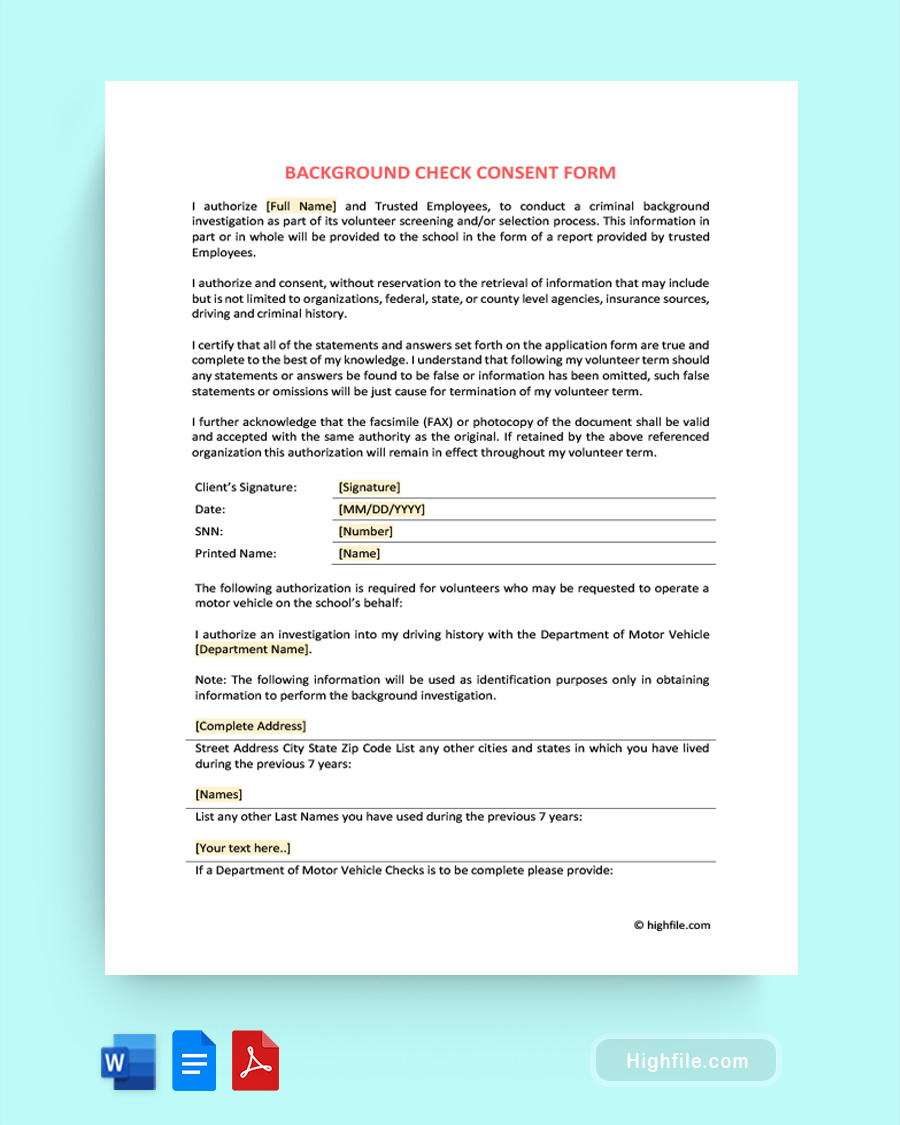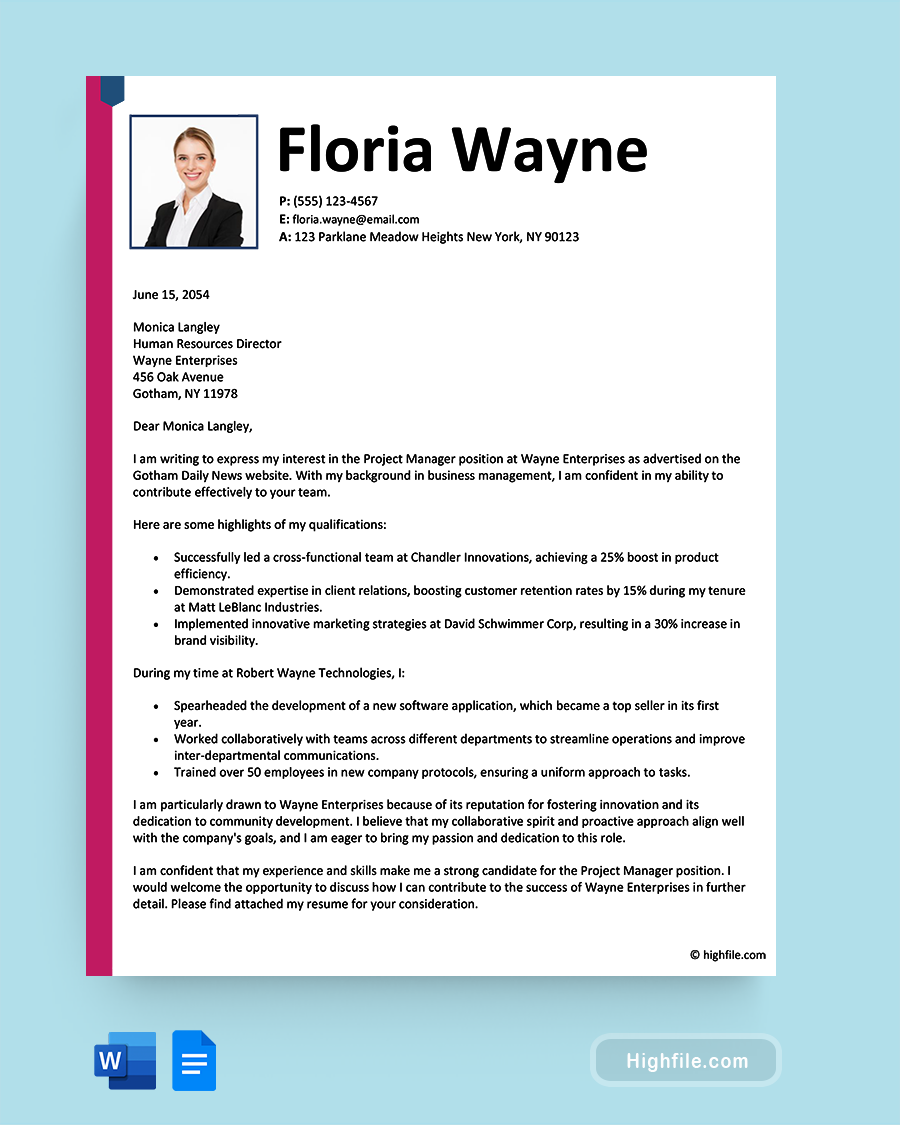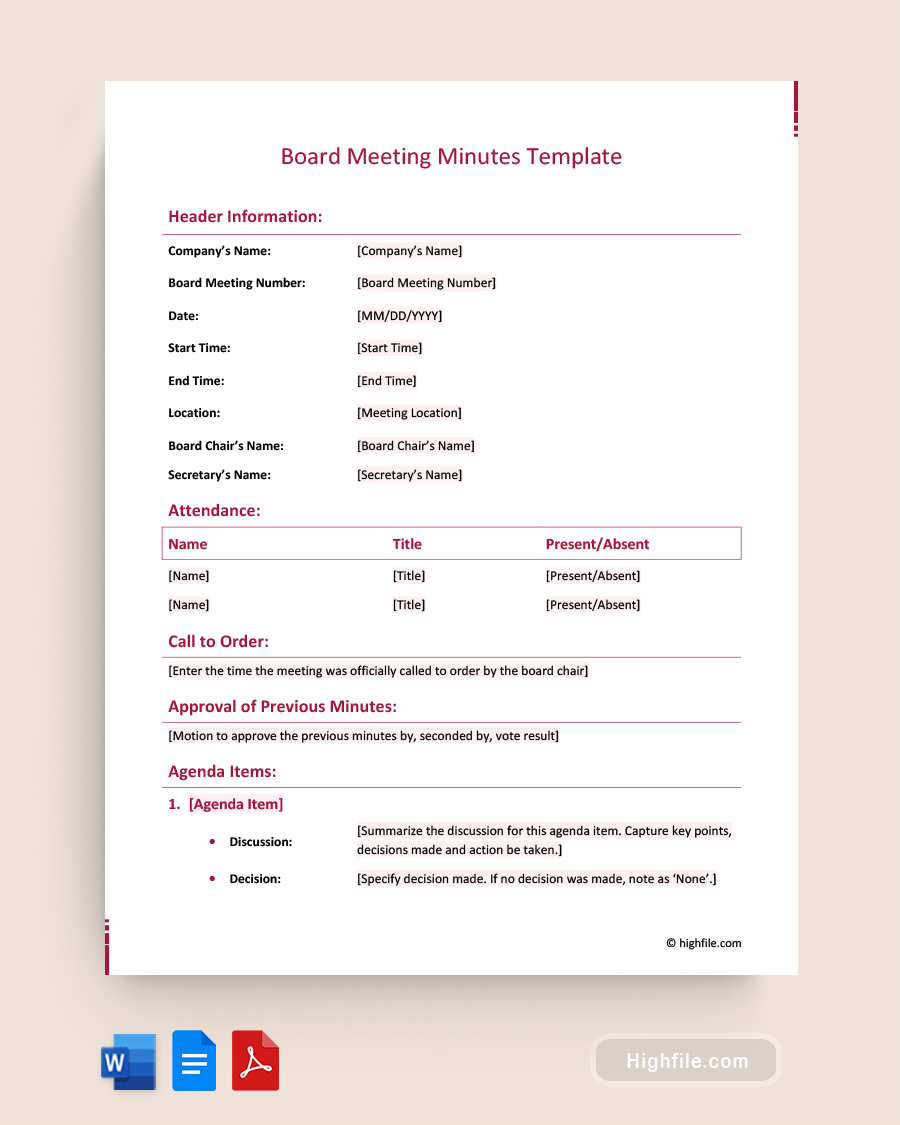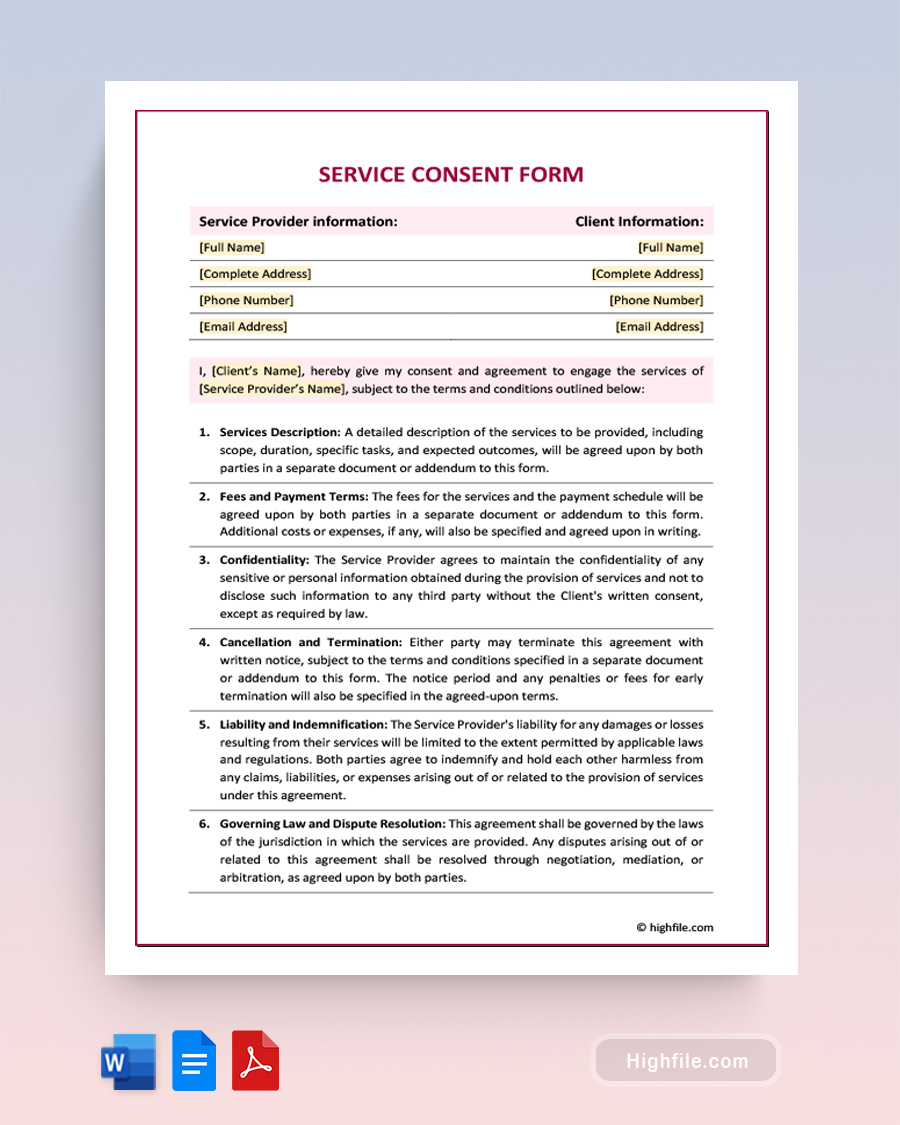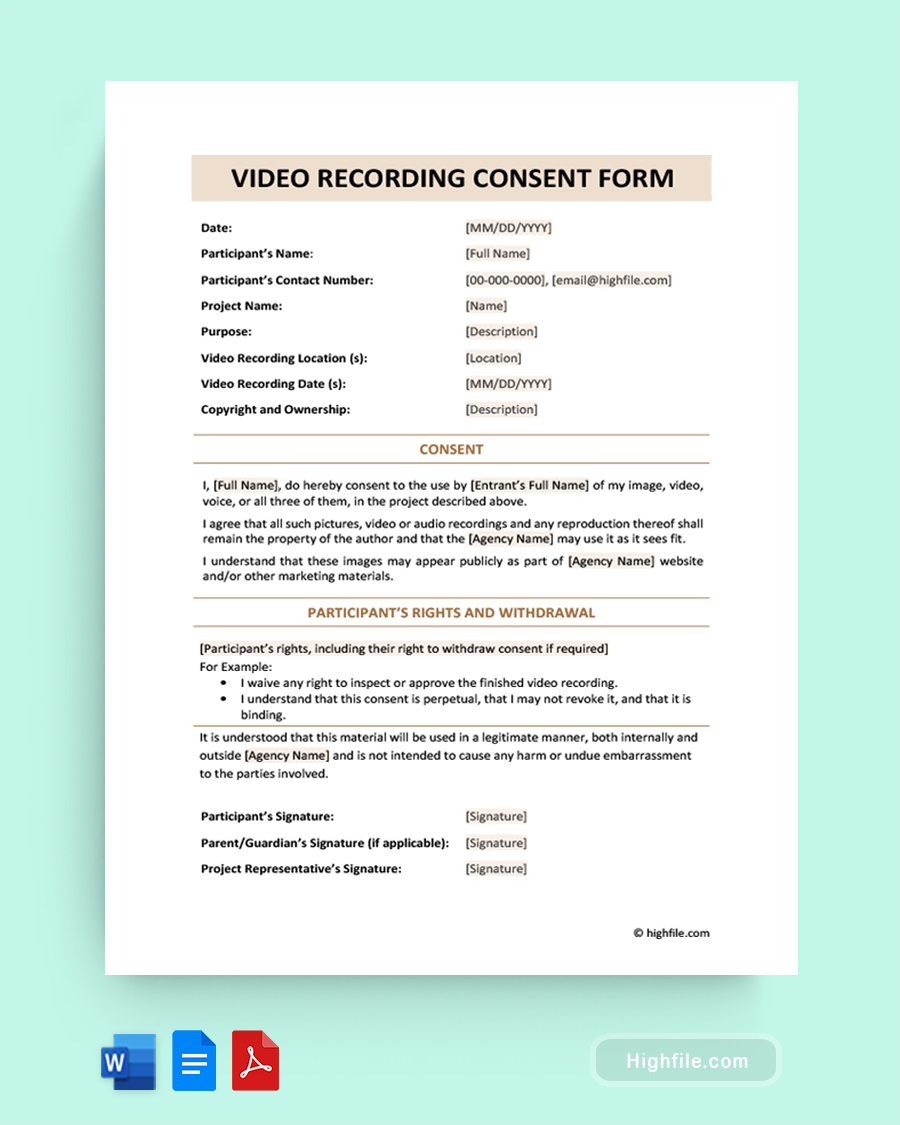If you’ve ever applied for a job or rented from a large agency, then you’ve most likely filled out and signed a background check consent form. However, that’s not the same as composing one to use. These vital forms are required before you search someone’s history; without them, even performing a private search to decide whether to hire or house someone can be illegal. We recommend using one of our preformatted, professionally designed, researched, and composed templates so you can ensure you have all the correct data and consent before you do your search.
What Is a Background Check Consent Form?
A background check consent form is a release that allows an entity, typically a business looking to hire employees, to perform a background check. Mainly, these checks cover criminal and financial backgrounds. Companies can ensure that their candidates haven’t been involved in risky practices that could affect their job performance and reliability.
How to Get a Background Check
How you get a background check will vary slightly depending on the situation and reason. As a general rule, you must apply to a unique entity that handles that specific type of data collection. For example, when applying for a government job, you may need to submit fingerprints and have the FBI do a deep check of all your recorded personal history, whether it’s accessible to the public or not. Meanwhile, a private citizen can check public records for free online or cheaply with a service that gets all the records from across the country for a few dollars. If you need more information, you could hire a private investigator with a license to collect more specialized information than a private citizen but less than a government agency, or the police can look up.
Pro Tip: The easiest way to get a general background check as a private citizen is to pay a few dollars in subscription fees to a reliable online service so you can run extensive checks on anyone whose name you know.
Essential Elements of a Background Check Consent Form
The essential elements of a background check consent form are important because the person signing needs to understand what they agree to. Below we’ve listed each aspect as it should appear on the page.
- Title- This should be in large, bold print and show the reader precisely what they are reading and signing.
- Company Name- Indicate who is asking for the information and provide their contact information.
- Background Check Company Info- In this section, you should clearly indicate who is doing the checking.
- Statements About The Background Check- Here, you should have up to 5 paragraphs explaining that the (named) background check company will be looking into the applicant’s history and specifics about what type of search it is. For example, if they require fingerprints or the background check agency reserves the right to interview people you know to obtain character references. These paragraphs should clearly outline each aspect or potential aspect of the application, like social media and criminal searches.
- Applicant Information- This is where the applicant puts their full name, birthdate, how long they’ve used the name, if there have been any name changes, etc.
- Statement of Assent- Assent is where the applicant adds their printed name and clearly consents to the background check with a signature and date.
- Provisional Statement- In a few states, such as California and Oklahoma, the applicant is allowed to request a free copy of the background check information. If your place of business is located in one of these states, you should include a checkbox option so the signor can request a copy.
Types of Background Checks
There are many types of background checks. Some cover more than one of the topics below, while others are incredibly specific. Whatever your background check is called, it will include at least one of the following. It may consist of as many others as are legal to perform in your industry and relevant to the type of application a person is putting in. For example, background checks for government jobs often include most or all of the items on this list. At the same time, a more specific application, such as the one you might fill out to buy a car, focuses on particular background types, like your financial history.
- Social Security Number Trace- This type of background check is also called an address history search, and it turns up any known name changes, aliases, and where they have lived.
- Sexual Offender Registry Check- The sexual offender registry has the names and information on what type of offense they committed. Doing this check is especially critical if the applicant is working with people.
- Reference Check- Checking someone’s references means calling the numbers provided and asking a few legally limited questions about their employability.
- Professional License Check- Not all fields require professional licenses. Still, verifying that they have the relevant certifications and licenses is vital if you are hiring someone to work a job requiring a license.
- Internet and Social Media Check- Googling someone’s name can get unexpected results. You never know when you’ll turn up a story about someone’s past that could influence their future employability. Additionally, people tend to spew many personal thoughts and views on their social media profiles. An applicant that posts about binge drinking, illegal drug use, how they got one over on a previous employer, or other alarming behavior is probably not the best option.
- Employment History Verification- Calling former employers to verify that the person in question worked where and when they claim can help ensure you have a reliable and honest applicant.
- Education Verification- When you verify education, from high school graduation to college degrees, it shows whether the applicant was honest about their education.
- Fingerprinting- Most fingerprint background checks exist to ensure that the person on the application is who they say they are because no two sets of fingerprints are ever the same.
- Drug Screening- Drug screening is vital for insurance and practical reasons.
- Driving Record- An applicants driving record is only relevant if they will be driving for your business. Still, it shows they have a valid license and any traffic or vehicle-related charges or tickets they’ve accrued.
- Criminal History Check- Some businesses get tax breaks or other benefits for employing former felons. A criminal history check tells you whether the applicant has been convicted of a crime.
- Credit Background Check- Credit checks offer insight into the applicant’s financial status.
- Certificate Confirmation Check- Like a professional license check, a certificate confirmation check shows whether a person holds certificates in any special skills.
Types of Background Checks Another Way
You can also break the types of background checks into three more general categories. First, a basic employer background check is typical in many large and small companies. Second, rental companies typically require a background check. Finally, the FBI background check is used for jobs such as those in hospitals and government agencies.
FAQs
Most of the time, authorization is necessary to run a background check. You must consent to allow an employer or rental agency to run a background check. Refusing the check means you cannot apply, but you have the right to refuse. However, police and government agencies do not always need your permission to run a background check.
An employer cannot do a background check without your consent in the USA. However, in a few rare instances, such as foreign emissaries/diplomats may be able to run a background check that circumvents US law because they have a unique status. That said, if you’re not applying to work for a foreign diplomat or embassy, it is illegal for ‘regular’ employers to run that check without your permission.
You can say no to background checks when consent is required. However, nothing is stopping one private citizen from checking the public records of another outside of applications for work or housing.
There are three basic steps for how to decline an employee on a background check. However, it’s a good practice to inform people beforehand what your main criteria are. For example, if you run a bank and do not hire people involved in any financial crime, telling new applicants this can avoid wasted time and frustration on both sides. Otherwise, you should issue a notification of pre-adverse action, which tells them you intend to deny the employment and offers seven days to dispute incorrect information. With that form, you should send a copy of the background check report and (if relevant) a summary of the FCRA.
Any negative information could ruin a background check. However, some fundamental problems are considered the worst or most likely to wreck an application. You’ll find them listed below.
ᐅ Criminal history, especially if it involves fraud or violent tendencies
ᐅ Lies or obvious inconsistencie
ᐅ Failed drug tests
ᐅ Bad driving record
ᐅ Poor credit
ᐅ Reports from previous employers or rentals
ᐅ Inability to verify information provided
It is 100% illegal for an employer to refuse to hire someone because of race, color, religion, sex (including gender identity, sexual orientation, and pregnancy), national origin, age (40 or older), disability, or genetic information. However, a few negative and risky things can come up in a background check, which means you can choose not to hire someone because of their background. For example, you should not hire someone with a bad driving record to work for a taxi or other driving service.
Employers ask for numerous things in a background check. Traditionally, they want a solid, verifiable work history, relevant education and experience, no criminal record, and a clean driving record. Additionally, a background check verifies your identity. Modern employers also tend to check your social media and credit history and may require a drug test.
Final Thoughts
Employers must be careful not to discriminate in their hiring practices, but that doesn’t mean they have to accept every applicant who walks in off the street. A background check can tell you a lot about whether a person is honest, reliable, and possesses the relevant skills, education, and licenses to do the work. You must first obtain a signed background check consent form to perform these searches. The consent form allows employers and other entities like rental companies to ensure they know who they are dealing with.
